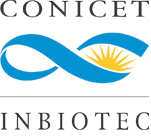Algal Research, Available online 3 July 2023, 103192, 2023
Highlights
Under salt stress, Azospirillum baldaniorum Sp245 improves biomass and lipid productivity in the microalgae Scenedesmus obliquus C1S.
Salt-induced oxidative stress and cell damage is reduced in microalgae/bacteria consortia
A. baldaniorum Sp245 promotes growth and reduces oxidative stress in S. obliquus C1S in an IAA-independent manner
S. obliquus C1S lipid accumulation in coculture with A. baldaniorum is IAA-dependent
Abstract
There is a growing interest in using microalgae for a variety of purposes, including production of pharmaceuticals, wastewater treatment, CO2 capture from flue gases, and biomass as a feedstock for biofuels and feed/food supplements. In addition to environmental conditions, the local availability of suitable water for massive production microalgal biomass often compromises biomass productivity, and thus, techno-economic feasibility towards implementation. Although salinity tends to promote accumulation of carbon reserves in some freshwater microalgae, which could be advantageous for producing feedstocks for biofuels, the negative effect on growth usually off-sets this benefit, and results in a lower productivity of the target. The aim of this study was to analyse whether inoculation with a plant growth-promoting bacterium could ameliorate the detrimental effect of NaCl on growth of a microalga. We showed that inoculation with Azospirillum baldaniorum Sp245 improved the early response of Scenedesmus obliquus CS1 to NaCl addition, and its overall growth performance. As a result, co-cultures attained higher biomass and lipids productivities than microalgal axenic cultures. Lipid productivity raised up due to both: an increased biomass production and a higher lipids enrichment in the biomass. Similar results were obtained under constant light and temperature or under climate-simulated conditions in environmental photobioreactors (Phenometrics™). Inoculation with the bacterium lowered the levels of reactive oxygen species, SH groups, chlorophyll and carotenoids in the algal cells, as well as cell damage, induced by salt stress. Inoculation with Azospirillum strains genetically modified to produce contrasting levels of IAA, suggested that although under non-stress conditions most of the algal growth promotion is IAA-dependent, under salt stress other still-unidentified factor(s) might play a more prominent role in algal stimulation.
This study increased the current understanding of the mechanisms underpinning bacterial-microalgal associations, and helps to design alternative strategies to increase algal productivity under suboptimal growth conditions, as most applications demand.
Keywords
Salinity, Reactive oxygen species (ROS), Lipid, Azospirillum, Scenedesmus

